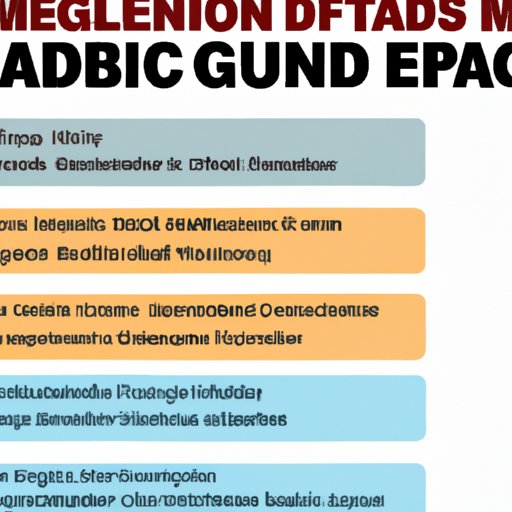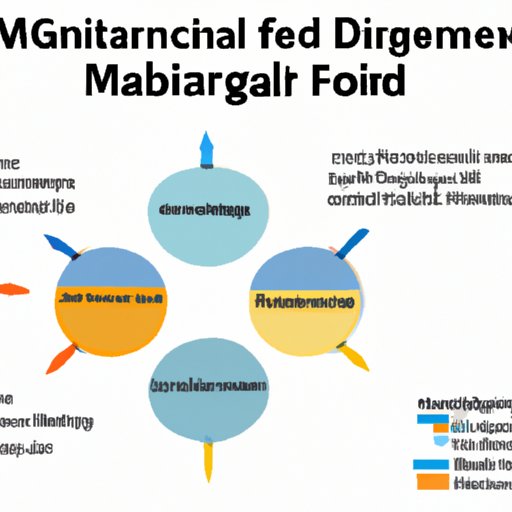Introduction
The Millennium Development Goals (MDGs) are a set of internationally agreed upon targets to reduce global poverty and improve the lives of people in developing countries. These goals were established in 2000 by world leaders from 189 countries and are set to be achieved by 2015. MDG financing is an important part of achieving these goals, as it provides funds for projects and initiatives that will help developing countries reach the MDGs. In this article, we will explore how does MDG financing work.

Overview of MDG Financing and Goals
The MDGs consist of eight goals and 18 targets, which are aimed at reducing poverty and hunger, improving education, health, gender equality, and environmental sustainability, among other things. The MDGs are a framework for international development and have been described as “the world’s largest promise”. They provide a shared vision of a better future for all and have galvanized global action towards achieving them.
In order to achieve the MDGs, significant financial resources are needed. MDG financing is the process of providing these resources to developing countries in order to help them meet the MDGs. This financing can come from a variety of sources, including governments, international organizations, and the private sector.
Exploring the MDG Financing Mechanism: How Does It Work?
The MDG financing mechanism is complex and involves several different actors. In order to understand how it works, it is important to look at how funding for the MDGs is allocated and the various sources of MDG financing.
An Overview of How Funding for the MDGs Is Allocated
Funding for the MDGs is allocated through several different channels. Governments are the primary source of funding for the MDGs, as they provide both direct and indirect support. Direct support includes grants, concessional loans, and other forms of financial assistance. Indirect support includes tax incentives, subsidies, and other forms of policy-based support. International organizations, such as the World Bank and the United Nations, also provide funding for the MDGs through grants, loans, and technical assistance.
In addition to government and international organization funding, the private sector plays an increasingly important role in MDG financing. Private sector funding comes in the form of corporate social responsibility (CSR) initiatives, investments, and philanthropic contributions. CSR initiatives are often focused on specific MDG goals or target countries, while investments and philanthropy are more broadly focused.
Examining the Various Sources of MDG Financing
Government funding for the MDGs is typically provided through national budgets, with some countries allocating a specific percentage of their budget to MDG-related activities. International organizations, such as the World Bank, provide grants and loans to developing countries to help them meet the MDGs. These loans are typically provided on concessional terms, meaning they have lower interest rates than market rates.
The private sector has become increasingly involved in MDG financing, with many companies choosing to invest in MDG-related projects or initiatives. Private sector investments can take the form of equity investments, debt financing, or venture capital. Philanthropic contributions from corporations, individuals, and foundations are also becoming more common. These contributions can range from small donations to large grants.
Understanding the Role of Private Sector in MDG Financing
The private sector has an important role to play in MDG financing. Private sector investments and philanthropic contributions can help to fill the gap left by government and international organization funding. Private sector involvement can also bring new skills, technologies, and expertise to bear on MDG-related projects.
Assessing the Impact of Private Sector Funding on Developing Countries
Private sector funding can have a positive impact on developing countries, particularly when it is well targeted and managed. Private sector investments can create jobs, boost economic growth, and help to diversify economies. They can also help to drive technological innovation and increase access to services such as healthcare and education.
However, there are potential risks associated with private sector involvement in MDG financing. Private sector investments can be volatile, and there is a risk that investments may not have a positive impact if they are not properly managed. Additionally, private sector investments can be concentrated in certain sectors or regions, which can lead to unequal development and increased inequality.
Exploring Different Ways Private Sector Can Participate in MDG Financing
The private sector can participate in MDG financing in a number of ways. Companies can make direct investments in projects that contribute to the MDGs, such as renewable energy or sustainable agriculture. They can also provide financial support through philanthropic contributions or CSR initiatives. Finally, companies can provide technical expertise or knowledge sharing to help developing countries achieve the MDGs.

Assessing the Impact of MDG Financing on Developing Countries
MDG financing has had a significant impact on developing countries. It has helped to reduce poverty and increase access to essential services, such as healthcare and education. It has also enabled countries to invest in infrastructure and develop the necessary skills to meet the MDGs.
Examining the Benefits of MDG Financing
MDG financing has brought many benefits to developing countries. It has enabled countries to invest in vital infrastructure, such as roads and power grids, which has improved access to services and boosted economic growth. It has also helped to reduce poverty and increase access to healthcare and education. In addition, MDG financing has helped to promote gender equality and empower women.
Analyzing the Challenges of MDG Financing
Despite the many benefits of MDG financing, there are still challenges that need to be addressed. One of the main challenges is that MDG financing is often insufficient to meet the needs of developing countries. There is also a lack of coordination between different sources of financing, which can lead to inefficient use of funds. Additionally, there is a risk that MDG financing could exacerbate inequality if it is not properly managed.
Conclusion
MDG financing is an important tool for helping developing countries achieve the MDGs. It has enabled countries to invest in vital infrastructure, reduce poverty, and increase access to essential services. However, there are still challenges that need to be addressed, such as ensuring adequate financing and proper management of funds. The private sector also has an important role to play in MDG financing, as it can bring new skills, technologies, and expertise to bear on MDG-related projects.
In summary, MDG financing is an important part of achieving the MDGs. It has enabled developing countries to invest in vital infrastructure, reduce poverty, and increase access to essential services. However, there are still challenges that need to be addressed in order to ensure that MDG financing is effective and efficient.

Final Thoughts on MDG Financing
MDG financing is an important part of achieving the MDGs. It has enabled developing countries to invest in vital infrastructure, reduce poverty, and increase access to essential services. While there are still challenges that need to be addressed, MDG financing has already had a significant impact on the lives of millions of people around the world. As we move closer to the MDG deadline of 2015, it is important that we continue to support MDG financing and ensure that it is used effectively and efficiently.
(Note: Is this article not meeting your expectations? Do you have knowledge or insights to share? Unlock new opportunities and expand your reach by joining our authors team. Click Registration to join us and share your expertise with our readers.)
